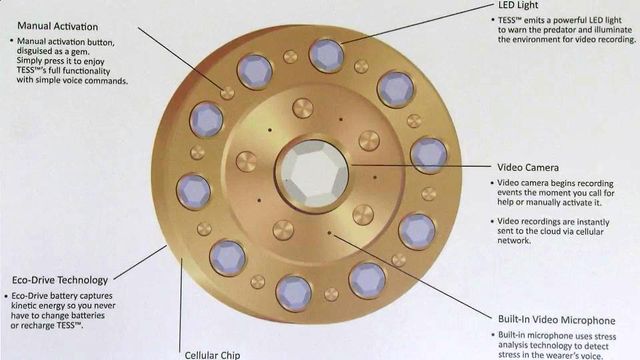Local vet hopes GPS technology can help prevent crime
A local veteran combined GPS technology with her own ideas and some support from North Carolina State University and a local technology giant to develop a piece of jewelry that could others in case of an attack.
Posted — Updated"When I was 19, I was the victim of rape, and I spent 20 years thinking like a victim, acting like a victim because of what had happened to me," she said. "I then took my power back and became an advocate for others who have been victims of crime."
With the help of North Carolina State University and Triangle-based RTI International, she has developed a voice-activated device – called {{a href="embed href="external_link-0"}}Tiger Eye Security Sensor{{/a}} – that looks like a lapel pin and uses GPS technology to alert police in case of attack.
When a user calls out in a stressed-tone words such as "help," "stop," "don't," or rape," for example, the Tiger Eye Security Sensor, embedded in jewelry, recognizes the stress in a person's voice.
The sensor can also record audio and video of an encounter.
Initially, the device is going to be placed in pieces of jewelry, something as subtle as a necklace.
An example of a place it might be used is on a remote jogging trail.
Scarlet believes the device will also be useful for college students.
The Tiger Eye Security Sensor is her first idea. She hopes it will be on the market in the first half of next year and expects it will cost $100 to $125.
• Credits
Copyright 2024 by Capitol Broadcasting Company. All rights reserved. This material may not be published, broadcast, rewritten or redistributed.





